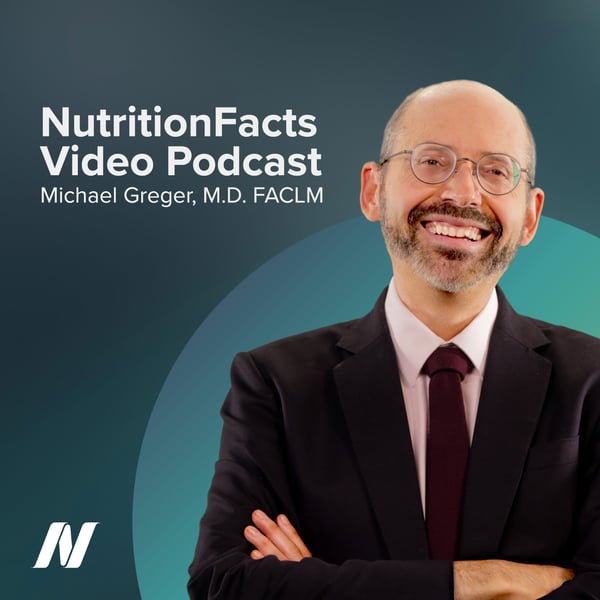Cognitive Stimulation, Music Therapy, and Cryostimulation to Improve Cognitive Function
NutritionFacts.org Video Podcast
[email protected]
4.8 • 877 Ratings
🗓️ 2 September 2024
⏱️ 4 minutes
🧾️ Download transcript
Summary
Transcript
Click on a timestamp to play from that location
| 0:00.0 | In my book How Not to Age, I discussed the role of drugs and supplements and focus |
| 0:11.7 | on diet and lifestyle approaches to the prevention and treatment of cognitive decline. |
| 0:17.1 | But there are a few common non-drug, non-supplement, non-lifestyle approaches to dementia treatment. |
| 0:22.6 | For example, cognitive stimulation therapy, which typically involves group activities and social interaction. |
| 0:28.6 | There have been at least 44 randomized controlled trials of cognitive stimulation, including thousands of participants. |
| 0:34.6 | ADAS COG, short for Alzheimer's disease assessment scale, cognitive subscale, |
| 0:40.3 | is the most commonly used measure of cognition in clinical trials of dementia treatment, |
| 0:44.3 | a clinically relevant improvement, |
| 0:46.3 | is often defined as a reduction of four more points on the ADAS COG measure. |
| 0:51.3 | Regrettably, the attenuation of cognitive decline for most of the cognitive |
| 0:55.9 | stimulation studies averaged only about two points. Now, you could argue, look, any improvement |
| 1:01.3 | is better than nothing, but unfortunately the cognitive effects don't appear to generalize |
| 1:06.1 | to helping with everyday life situations. You can train people to get better at a computerized brain game, |
| 1:12.1 | but that doesn't necessarily translate to other arenas. Also, the marginal improvements |
| 1:18.0 | are temporary. They don't seem to persist once the intervention period is over. While cognitive |
| 1:23.4 | stimulation therapy may have no significant overall effect on quality of life. |
| 1:28.3 | Any kind of group therapy has been shown to improve psychological well-being. |
| 1:33.3 | As social creatures, social participation is important for mental health throughout the life course, |
| 1:38.3 | but there's insufficient evidence that it can improve or prevent cognitive dysfunction. |
| 1:43.3 | Dementia is associated with |
| 1:46.0 | social isolation, but this may be reverse causation, where the dementia leads to social |
| 1:51.1 | withdrawal instead of the other way around. The same issue comes up all the time with those advocating |
... |
Please login to see the full transcript.
Disclaimer: The podcast and artwork embedded on this page are from [email protected], and are the property of its owner and not affiliated with or endorsed by Tapesearch.
Generated transcripts are the property of [email protected] and are distributed freely under the Fair Use doctrine. Transcripts generated by Tapesearch are not guaranteed to be accurate.
Copyright © Tapesearch 2025.

